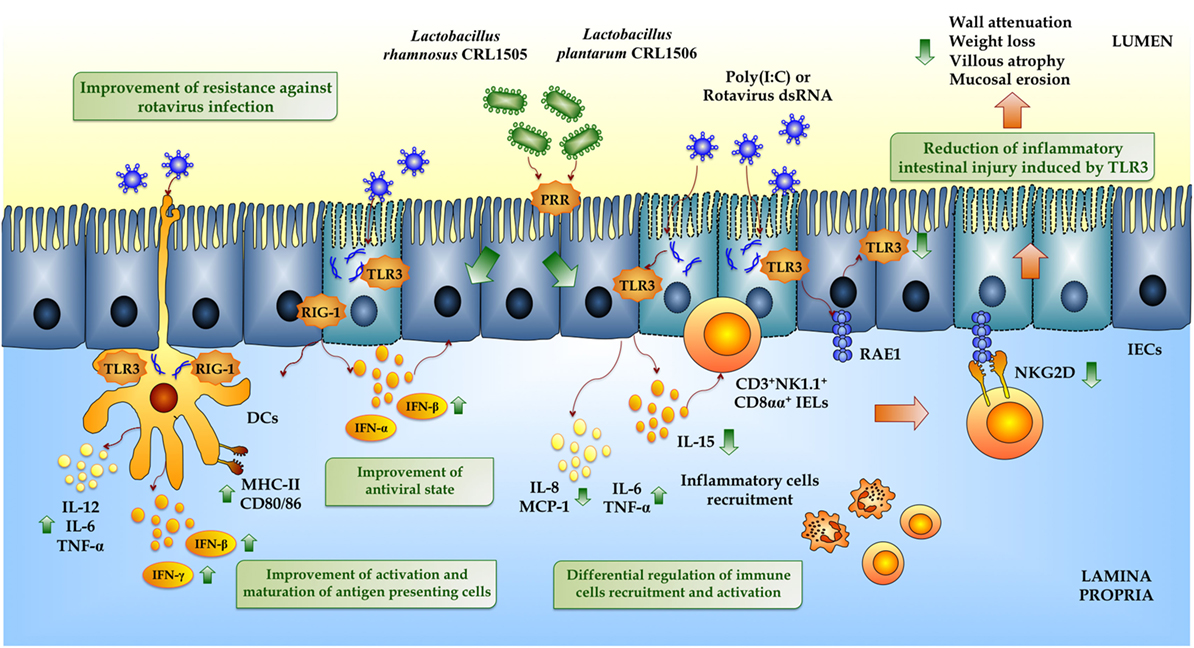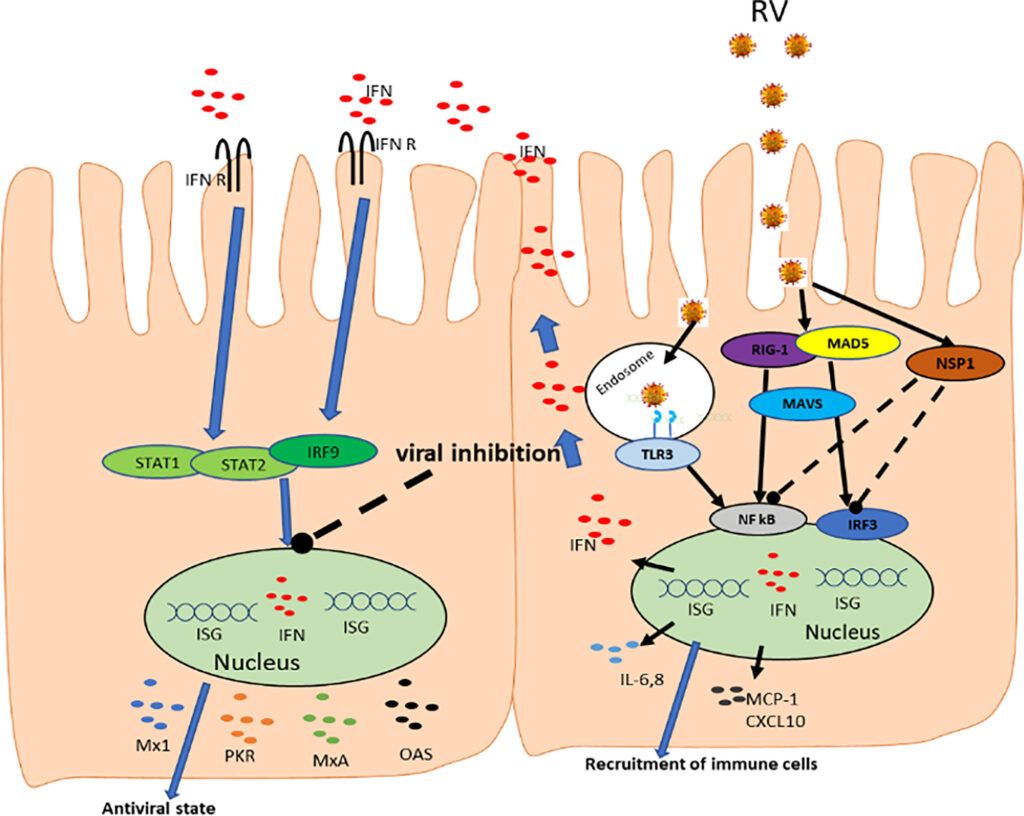Rotavirus, often abbreviated as RV, is one of the most common causes of severe diarrhea in infants and young children worldwide. This highly contagious virus can lead to dehydration and other serious complications if not managed properly. Understanding what rotavirus is, how it spreads, and the measures that can be taken to prevent it is essential for protecting vulnerable populations. In this article, we will explore the nature of rotavirus, its transmission pathways, and effective prevention strategies.

What Is Rotavirus?
Rotavirus is a viral infection that primarily affects the intestines, causing inflammation of the stomach and intestines, known as gastroenteritis. The virus is named for its distinctive wheel-like appearance when viewed under an electron microscope. Rotavirus is particularly dangerous because it can survive for long periods outside the human body and is resistant to many common disinfectants.
The symptoms of rotavirus infection typically appear within two days of exposure and include:
- Severe watery diarrhea
- Vomiting
- Fever
- Abdominal pain
- Loss of appetite
In severe cases, the rapid loss of fluids from diarrhea and vomiting can lead to dehydration, which is especially dangerous for infants and young children. Dehydration can cause dry mouth, sunken eyes, reduced urine output, and lethargy. If left untreated, it may require hospitalization and intravenous fluid therapy.
Who Is Most at Risk?
While anyone can contract rotavirus, certain groups are more susceptible to severe illness:
- Infants and young children under the age of five
- Individuals with weakened immune systems
- Older adults
- People living in crowded or unsanitary conditions
Children are particularly vulnerable because their immune systems are still developing, making them less equipped to fight off infections. Additionally, young children often place objects in their mouths, increasing the likelihood of exposure to the virus.
How Does Rotavirus Spread?
Rotavirus is highly contagious and spreads easily through contact with infected individuals or contaminated surfaces. Understanding the modes of transmission is crucial for preventing outbreaks.
Fecal-Oral Transmission
The primary mode of transmission for rotavirus is the fecal-oral route. This means that the virus is shed in the stool of an infected person and can spread when another individual comes into contact with contaminated fecal matter. For example:
- A caregiver changes a diaper and does not wash their hands thoroughly afterward.
- A child touches a toy that has been contaminated by an infected child’s unwashed hands.
- Food or water becomes contaminated with the virus.
Because rotavirus can survive on surfaces for hours or even days, it is easy for the virus to spread in environments where hygiene practices are inadequate.
Person-to-Person Contact
Close contact with an infected individual also increases the risk of transmission. Rotavirus can spread through:
- Touching or shaking hands with someone who has the virus on their hands.
- Hugging or holding an infected child.
- Sharing utensils, cups, or towels with an infected person.
Daycare centers, schools, and households with multiple children are common settings for rotavirus outbreaks due to frequent close contact and shared items.
Airborne Droplets
In some cases, rotavirus can spread through airborne droplets. When an infected person vomits, tiny particles containing the virus can become suspended in the air and inhaled by others nearby. This mode of transmission is less common but still poses a risk in enclosed spaces.
How to Prevent Rotavirus
Preventing rotavirus involves a combination of vaccination, good hygiene practices, and proper sanitation. By implementing these measures, the spread of the virus can be significantly reduced.
Vaccination
Vaccination is the most effective way to protect against rotavirus. Vaccines are available that provide immunity to the most common strains of the virus. These vaccines are administered orally in multiple doses during infancy, typically at two and four months of age. Some key benefits of vaccination include:
- Reduced risk of severe illness
- Lower rates of hospitalization due to dehydration
- Decreased transmission of the virus in communities
It is important for parents and caregivers to ensure that children receive all recommended doses of the vaccine according to the schedule provided by healthcare professionals.
Good Hygiene Practices
Maintaining proper hygiene is critical for preventing the spread of rotavirus. Simple steps can make a significant difference:
- Wash hands thoroughly with soap and water after using the bathroom, changing diapers, and before preparing or eating food.
- Clean and disinfect surfaces regularly, especially those that come into contact with food or are frequently touched by children.
- Avoid sharing personal items such as utensils, cups, and towels.
- Teach children the importance of handwashing and supervise them until they develop good habits.
Hand sanitizers may help reduce the spread of germs, but they are not as effective against rotavirus as washing with soap and water. Therefore, handwashing should always be prioritized over the use of sanitizers alone.
Proper Sanitation
Access to clean water and proper sanitation facilities plays a vital role in preventing rotavirus outbreaks. Communities without adequate infrastructure are at higher risk of widespread infection. Key sanitation measures include:
- Ensuring safe drinking water supplies
- Proper disposal of human waste
- Regular cleaning of public spaces such as schools and daycare centers
- Educating communities about the importance of sanitation
In areas where resources are limited, initiatives aimed at improving water quality and access to sanitation can have a profound impact on reducing the incidence of rotavirus.
Isolation During Illness
If someone in your household becomes infected with rotavirus, taking steps to isolate them can help prevent the spread to others. Consider the following actions:
- Keep the infected individual away from other family members as much as possible.
- Use separate bathrooms if available, or clean the bathroom thoroughly after each use by the infected person.
- Wash bedding, clothing, and other items used by the infected person separately from others’ laundry.
- Dispose of diapers carefully and immediately wash your hands afterward.
By minimizing contact with the infected individual and practicing strict hygiene, you can reduce the likelihood of spreading the virus to others in your home.
Managing Rotavirus Infection
While prevention is the best approach, knowing how to manage a rotavirus infection is equally important. Early recognition of symptoms and prompt treatment can prevent complications such as dehydration.
Rehydration Therapy
One of the main concerns with rotavirus infection is dehydration caused by excessive fluid loss from diarrhea and vomiting. Rehydration therapy is essential for replacing lost fluids and electrolytes. Options include:
- Oral rehydration solutions (ORS), which are specially formulated drinks containing salts and sugars to replenish lost nutrients.
- Intravenous fluids administered in a medical setting for severe cases of dehydration.
Parents and caregivers should monitor for signs of dehydration, such as dry mouth, lack of tears, and decreased urination, and seek medical attention if necessary.
Supportive Care
There is no specific antiviral medication to treat rotavirus. Instead, supportive care focuses on alleviating symptoms and ensuring comfort. Tips for managing symptoms include:
- Offering small sips of clear fluids frequently to prevent further dehydration.
- Avoiding sugary or caffeinated beverages, which can worsen diarrhea.
- Providing bland foods like rice, bananas, and applesauce once the stomach begins to settle.
- Allowing the body time to recover by ensuring adequate rest.
Over-the-counter medications for diarrhea and vomiting are generally not recommended for children unless prescribed by a healthcare provider.
When to Seek Medical Help
While most cases of rotavirus resolve on their own with proper care, certain situations warrant immediate medical attention. These include:
- Signs of severe dehydration, such as extreme thirst, confusion, or inability to produce tears.
- Persistent vomiting that prevents fluid intake.
- Bloody stools or severe abdominal pain.
- Fever above 102 degrees Fahrenheit in infants or young children.
Seeking timely medical care can prevent complications and ensure a speedy recovery.





